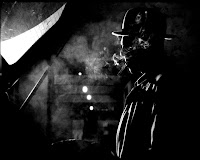***
Khiam 2000 - 2007
by Joana Hadjithomas & Khalil Joreige
Lebanon, 2008 - Documentary
In 1999, while South Lebanon was still occupied by the Israeli army, we had no image of the detention camp of Khiam. We met six prisoners who had just been freed to discuss with them the experience of detention, the relation they developed to artwork to survive and to question the modes of representation.
In May 2000, the camp of Khiam is liberated and turned into a museum.
During the July 2006 war, the camp is totally destroyed by Israel.
Today, there is some talk of rebuilding it exactly as it was.
8 years later, we meet again with the six prisoners we had filmed in 1999 to recall with them the liberation then the destruction of the camp, memory, history, reconstitution, imagination and power of the image.
***
Conversation de Salon II (4,5,6)
by Danielle Arbid
Lebanon, 2009 - Cinematic essay
In Beirut, my mother receives guests every day at around 4pm. My mother's friends take over her living room and divulge details of their lives. Conversation erupts on all sides. Secrets are revealed. Even happiness is the subject of rivalry.
In three films, my mother's friends talk about of what makes them happy: knowing how to travel, getting themselves cosmetic surgery, and to praying.
***
Sheftou mn biid
by Elie Dagher
Lebanon, 2009 - Video clip
Music video for a single from Belaaks, an album produced by Jean Marie Riachi.
***
Ismak
by Joe Elias and Youmna Habbouche
Lebanon, 2009 - Video clip
A frame by frame animated visual adaptation of Youmna Saba's song "Ismak."
***
Prelude to an abyss
by Pedros Tamizian
Lebanon, 2009 - Video clip
Serge kills Abed, Fadi panics and Amin observes.
***
Generation Rewind
by Chadi Younes
Lebanon, 2009 - Cinematic Essay
I found a tape I shot in 2005 but had not seen since then. The label said "March 14th." On that day 1 million Lebanese showed up in downtown Beirut to protest. Put together, the footage turned out to be a portrait of a young generation that inherits the past and, inevitably, keeps repeating it.
***
Le temps des cerises
by Robert Cremona
Lebanon, 2009 - Short movie
“The Quiet town where nothing goes wrong”
Alice, 13 years old, is waiting for the train that will take her far away, to a land where she would be free to enjoy the simple things in life…
Her wish starts to come true the day she falls on the mysterious paper that reads,“Congratulations you have won a one way ticket to Le Temps des Cerises »...
***
Not Like My Sister
by Leyla Assaf-Tengroth
Sweden, 2008 - Documentary
The Kerkatli family’s oldest daughter, Rim, was married off at age 13. Her little sister Dalida has decided that this will never happen to her. She wants to make her own choice-but it is a risky path.
At age nine, Rim was in the spotlight in the director's work “Cheikha”. After this exposure Rim was able to go to school, but her family crushed her dreams by forcing her to marry her father’s cousin.
Rim’s little sister Dalida is uncommonly strong-willed and brave. She refuses to marry on her family’s terms. By the age of 16 she has survived three attempts on her future by her father and his brothers. Despite this, and against all odds, Dalida’s protest grows ever stronger. She revolts, breaks old patterns, ignores traditions and finally triumphs when she manages to marry the man she loves, even though he is Christian. But her revolt comes with a price: Dalida can never return to her home village.
***
Night of Love
by Ziad Antar
Lebanon, 2009 - Cinematic essay
***
Hysterma
by Khaled Ramadan
Lebanon / Egypt / Finland, 2009 - Cinematic essay
Falafel (Arabic: فلافل (falaafil), Hebrew: פָלָאפֶל; also known in Egypt and Sudan as ta'meya, Arabic طعمية).
Falafel originated in Egypt, and has been part of the diet of Arabs and Mizrahi Jews for centuries. It is an iconic Palestinian food and is also considered a national food in Israel. A popular Israeli song composed by Dan Almagor in 1958, "And We Have Falafel," included a line claiming falafel as an exclusive Israeli provenance. By the 1970s, Jewish cookbooks included recipes for falafel that made no mention of its Arab origins, leading many Arabs to resent the cultural appropriation of this iconic food.
Ammiel Alcalay, a Jewish professor of Middle Eastern culture, has described the Israeli adoption of falafel as "total appropriation".
***
Arb3a Chabeb wa siyara
by Joe Saadeh
Lebanon, 2009 - Short Movie
Four guys searching for a job in “alkone.” The car breaks down. Each one leaves in a different direction.
***
No title (Music & video performance)
Collectif LaboStrongsky.mov
Lebanon, 2009 - Cinematic Essay
A live experimental screening which has the vocation of being a film but slips into the ephemeral as it will never be recorded. A screening which speaks for itself.
 And the first ever Lebanese Film Festival award winner is… Shirin Abu Shaqra with Un instant mon Glamour. Congratulations Shirin !
And the first ever Lebanese Film Festival award winner is… Shirin Abu Shaqra with Un instant mon Glamour. Congratulations Shirin !


.jpg)
.jpg)
.jpg)
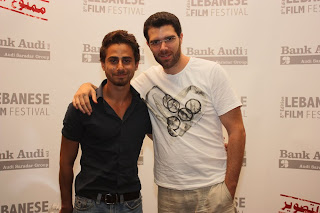.jpg)
.jpg)
.jpg)
.jpg)
.jpg)
.jpg)
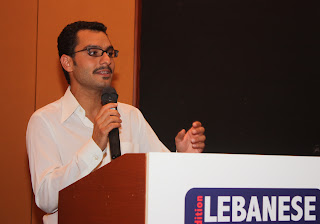.jpg)
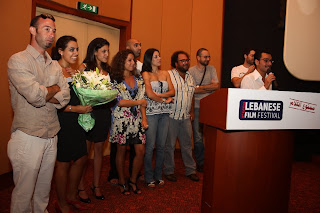.jpg)
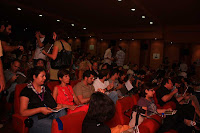

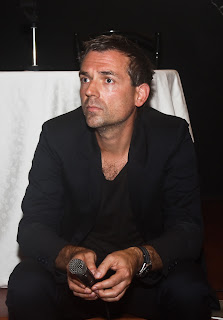.jpg)
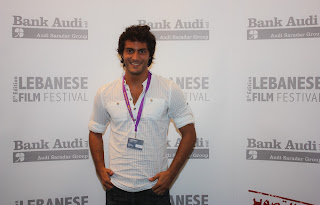



.jpg)
.jpg)
.jpg)
.jpg)





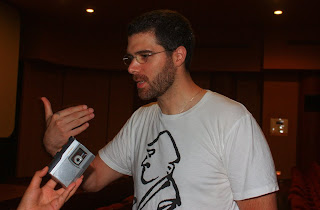

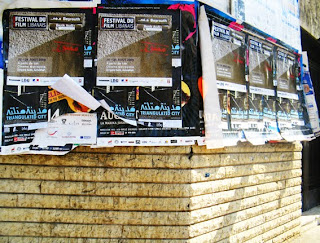

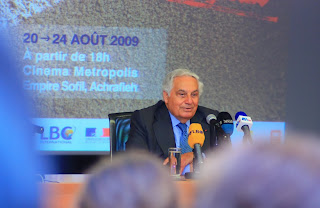



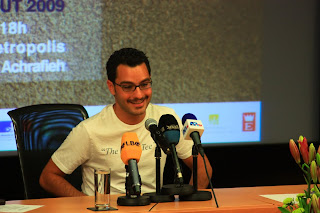




.jpg)


